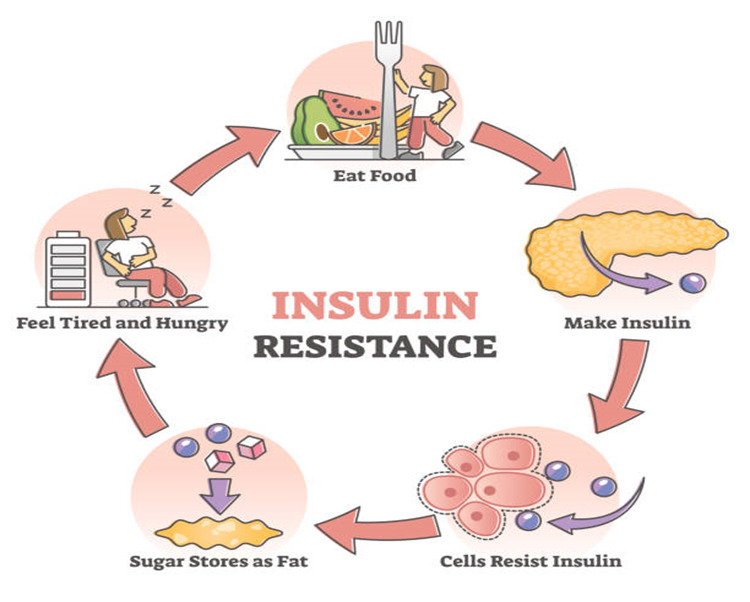Mr Mouli Doddi
Diabetes, also called diabetes mellitus, is a disease when the blood sugar levels are excessively high. This happens when your body either produces insufficient insulin (the hormone that regulates blood sugar levels) or is unable to utilize the insulin that is produced properly.
Diabetes-related high blood sugar that is left untreated can harm your kidneys, heart, nerves, etc. Discuss witha private endocrinology clinic, London how best you can manage the disease.
Types of Diabetes
The common types of diabetes are:
- Type 1 Diabetes: Also called juvenile diabetes, is characterized by inadequate insulin production. Insulin-producing cells in the pancreas are targeted and killed by the immune system.
The symptoms appear suddenly for a few days or weeks. Children are especially susceptible to this. Therefore, if you experience any of the symptoms, you should visit our private endocrinology clinic, London as soon as possible.
- Type 2 Diabetes: Also known as adult-onset diabetes, develops when the body fails to use insulin as it should, causing blood sugar levels to rise. Type 2 diabetes affects more than 90% of patients with diabetes.
Gestational Diabetes: This pregnancy-related diabetes is hyperglycemia when blood glucose levels are above normal but below those that are indicative of diabetes.

Causes of Diabetes
Each type of diabetes has its different causes.
- Type 1 Diabetes: It is unclear what causes this type of diabetes. Some people may be affected by their genes, or a virus may trigger an immune system attack.
The immune system wrongly attacks and kills insulin-producing beta cells in the pancreas for some unknown cause.
- Type 2 Diabetes: This occurs as a result of both hereditary and environmental factors. This particular type of diabetes is primarily brought on by increased body weight and physical inactivity.
Type 2 diabetes may go undiagnosed until it starts to negatively impact your health. A quarter of those who have the illness is unaware of it.
Early diagnosis is paramount. Contact diabetes and endocrinology consultants to find out whether you should get tested.
- Gestational Diabetes: Gestational diabetes is brought on by Insulin-blocking hormones the placenta produces, and hormonal changes during pregnancy.
Early Signs and Symptoms of Diabetes
Both types of diabetes have some similar signs.
- Increased Urination and Thirst: As your kidneys work extra hard to remove excess sugar from the blood, you will urinate more frequently and you become dehydrated. This draws the fluid from your tissues and makes you thirsty. You’ll drink more as a result of this. The regular individual naturally needs to urinate four to seven times in 24 hours, but diabetics may urinate more frequently.
- Itchy Skin and Dry Mouth: There is less moisture available for other things since your body is using fluids to urinate. Your skin may feel dry and itch, your mouth could become dry and you dehydrate.
- Hunger and Fatigue: Diabetes can prevent glucose from reaching your cells, which causes you to feel hungry even after eating. You could feel weak and exhausted when your body is unable to use the energy from food. Speak with our diabetes and endocrinology consultants regarding designing a diet plan that works best for diabetes.

- Cloudy Vision: Your eyes’ lenses could swell due to changes in your body’s fluid levels. They alter their shape and lose focus.
Symptoms of Diabetes
Type 1 Diabetes
- Unintentional Weight Loss: Your body will begin burning muscle and fat for energy if it is unable to obtain it from the diet. You also lose calories when you frequently urinate because you lose sugar. Even when your eating habits haven’t altered, you might still lose weight.
- Vomiting and Nausea: Your body produces ketones when it switches to fat burning. These can accumulate in your blood to risky levels, a condition known as diabetic ketoacidosis that may be life-threatening. Your stomach may feel ill due to ketones.
Type 2 Diabetes
These develop gradually as they manifest after a prolonged period of high blood sugar.
- Swollen and Tender Gums: The bones that support your teeth and your gums may be more susceptible to infections. The gums around your teeth may become inflamed or pull away thus affecting the firmness of your teeth.
- Difficulty in Healing Cuts and Sores: Blood flow can be affected by high blood sugar, and result in nerve damage that makes it difficult for your body to heal wounds.
- Unconsciousness: Your blood sugar may drop too low and you may faint if you exercise, skip a meal, or take too much medicine.
- Yeast Infections: Glucose is a food source for yeast, thus a large supply helps it grow. Any warm, moist fold of skin like in between toes and fingers, inside or around sex organs, or under the breast, can support the growth of infections. These can be seen in both male and female diabetics.
- Pain and Numb Feet or Legs: Due to nerve damage, high blood sugar levels might make your head hurt and make your feet or legs numb.
Additional symptoms include urinary tract infections in women; erectile dysfunction, decreased sex drive, and muscle strength in men.
Symptoms of Gestational Diabetes
Symptoms are not ascertained in women who have gestational diabetes.
When doing a routine oral glucose tolerance test or blood sugar test, which is often done between the 24th and 28th week of pregnancy, medical professionals frequently find the issue. Visit a private endocrinology clinic, London to detect your condition.



